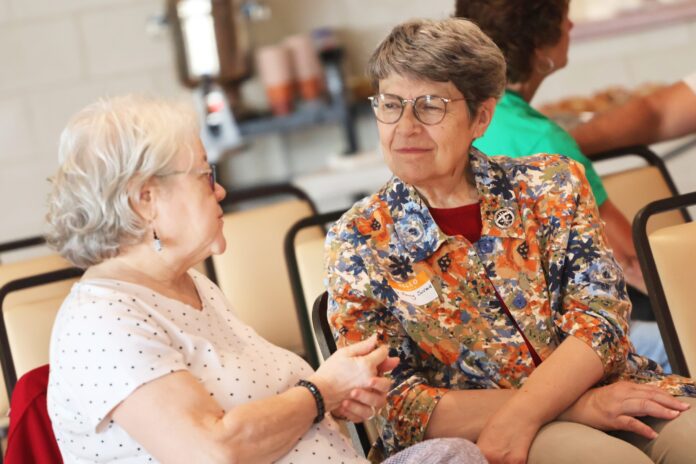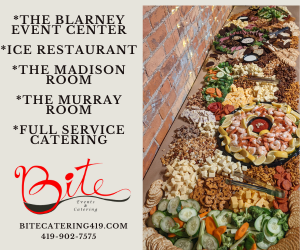Program gives residents tools to bridge divides in community
SYLVANIA – How do you interact with people who don’t think the same way you do?
In a deeply polarized society, there is a growing tendency to avoid hard conversations, to categorize others by their politics or other group affiliations, to “unfriend” or “snooze” the people with whom we disagree.
Mike Linehan saw it at his family reunion over the summer. “We all huddle in our own safe little camps of thought. We exchange pleasantries in the beginning and the end of the reunion, and nothing happens in between,” said Linehan.
Linehan and about a dozen others attended a workshop Aug. 24 in Sylvania to learn about Bridging to Belonging, a program to empower communities to create spaces where every person belongs and contributes together.
The MultiFaith Council of Northwest Ohio hosted the event at Olivet Lutheran Church to introduce the program that was originally developed for the InterFaith Leadership Council of Metropolitan Detroit.
Donna Mens, a member of the MFC and Olivet Lutheran Church who attended the workshop, expressed interest in gaining the tools to effectively listen to people who have different opinions.
“I feel the polarization, especially politically right now, and it is so emotionally charged,” said Mens. “So how do we bridge that? How do we listen to each other, and what people’s thoughts and values are without that defensiveness and that emotion?”
Rachel Cannon, a psychologist specializing in organizational development and behavior and co-creator of Bridging to Belonging, spoke on the science of belonging. She explained how the program helps participants learn to build genuine connections with people from groups outside their comfort zone.
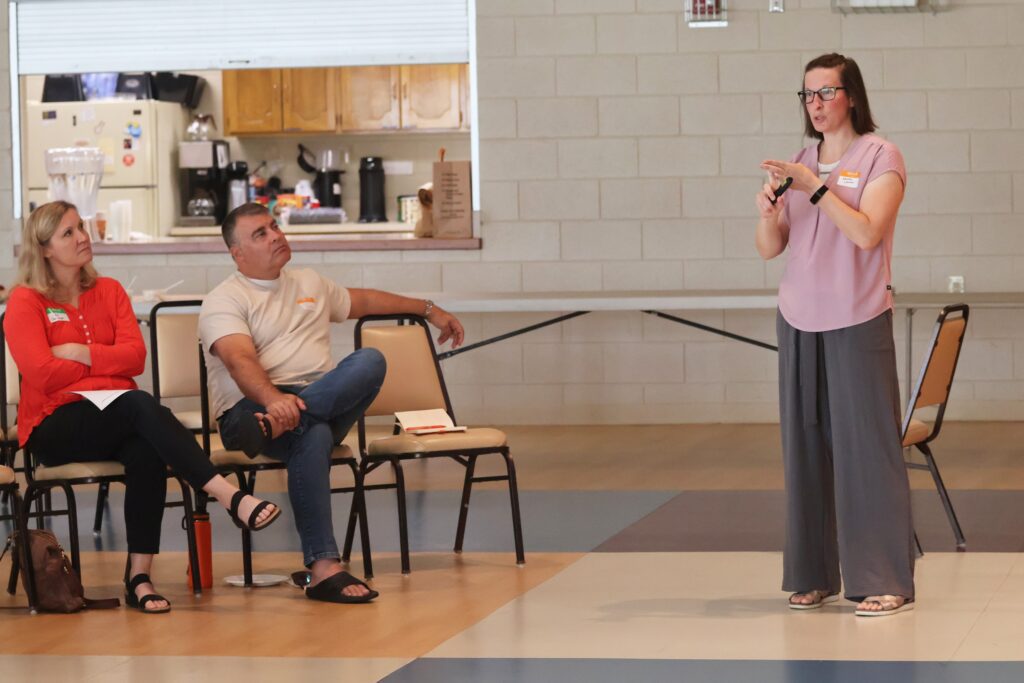
The opposite of belonging is “othering,” Cannon said. This emphasizes the differences between groups of people and can often lead to extreme forms of hate. Whether looking at race, faith, age, socio-economic status or another characteristic, “othering begins simply when you flatten someone’s identity and only see one aspect of who they are,” said Cannon.
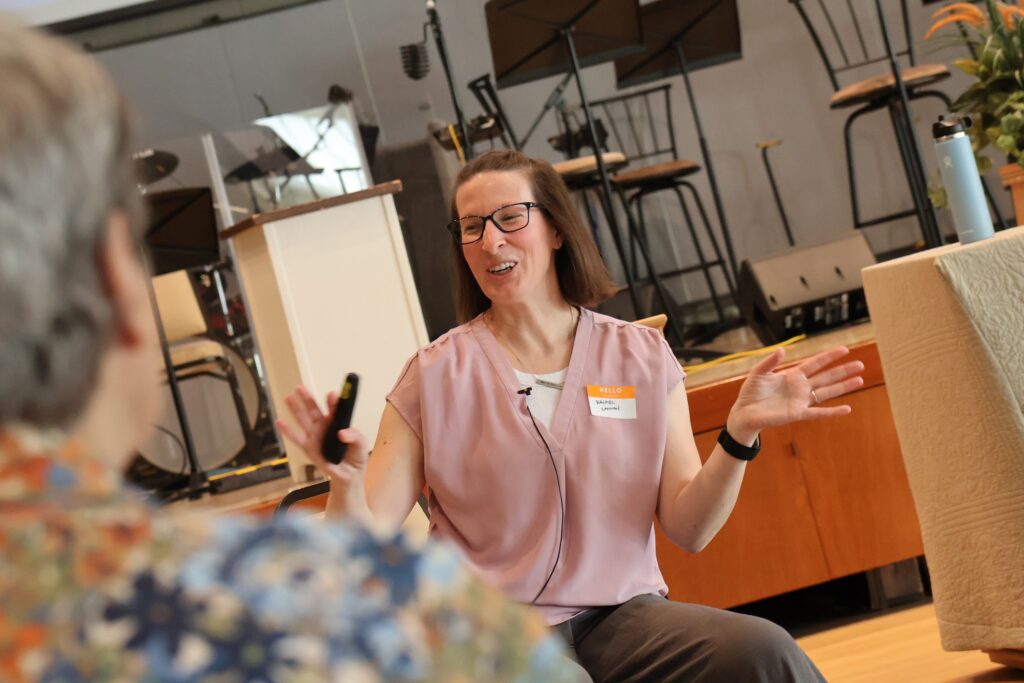
According to Cannon, humans naturally do this as a way of trying to explain the world around them. “We see one thing that happens, and we try to fill-in the rest of the story,” she explained. “The challenge for us is, can I stop my natural tendency and can I become more curious?”
Cannon cited research from the nonprofit More in Common that revealed Americans often have a distorted understanding of what people on the other side of the political aisle really think. “Our sense of division, our sense of polarization, is really truly about perception,” she said. “The gap between where, say, Democrats are, and where Republicans think they are, is very big … and vice versa.”
This perceived polarization “leads us to viewing others as a problem, because we think we know the story,” added Cannon. “So our efforts are focused on others rather than starting with ourselves.”
Bridging to Belonging started several years ago in the wake of the pandemic, and Cannon estimates a couple hundred people have participated in the Detroit area.
Diverse groups consisting of six to eight people meet four times over the course of eight weeks to share stories, and explore their values and dialogue on how to collaborate. They also view online learning modules between meetings to learn skills they can practice to foster belonging and build bridges between different groups.
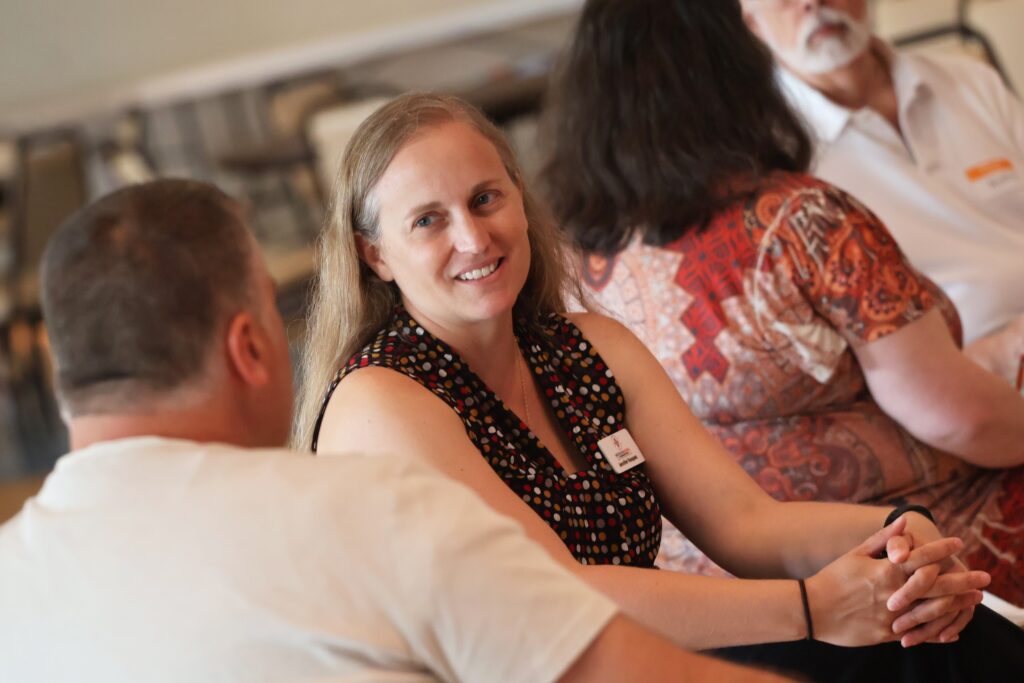
Jennifer Vasquez, executive director of the MFC, said the next step is for a small local group to train as moderators by going through the eight-week program together this fall. Once they complete the training, the plan is to begin forming other groups in the Toledo area.
“We’re hoping that other organizations and faith communities, and maybe even businesses, might be interested in going through the process and then apply the skills they learn to the work they’re already doing,” said Vasquez.
Cannon said the real impact of the program is measured by the “ripple effect” individuals have on the people around them.
“We might think that ‘I’m just one person,’ but you have connections to many different communities,” she said. “You don’t need to be the bridge to everything — the ones where you already have connections is where you start.”


